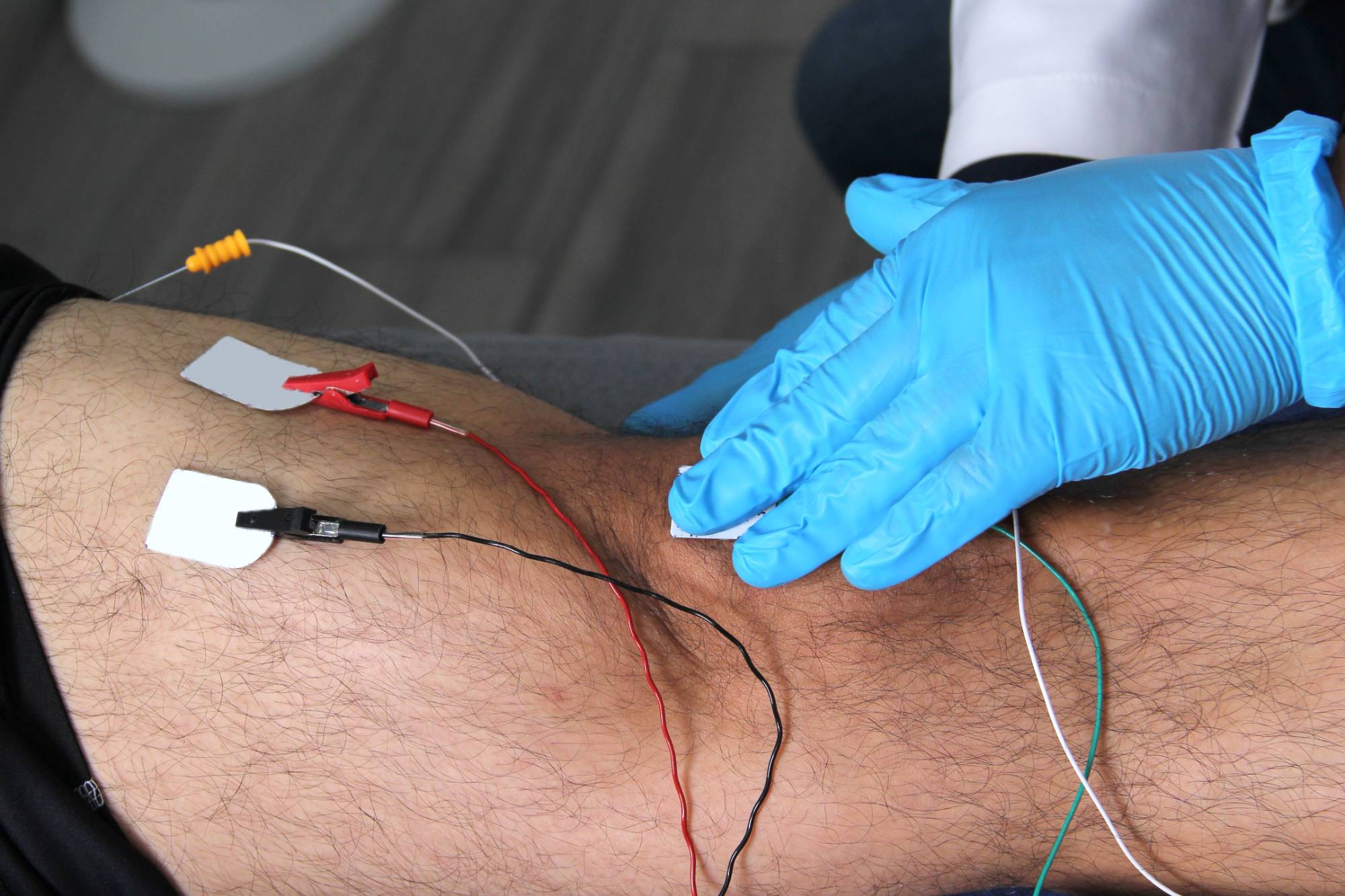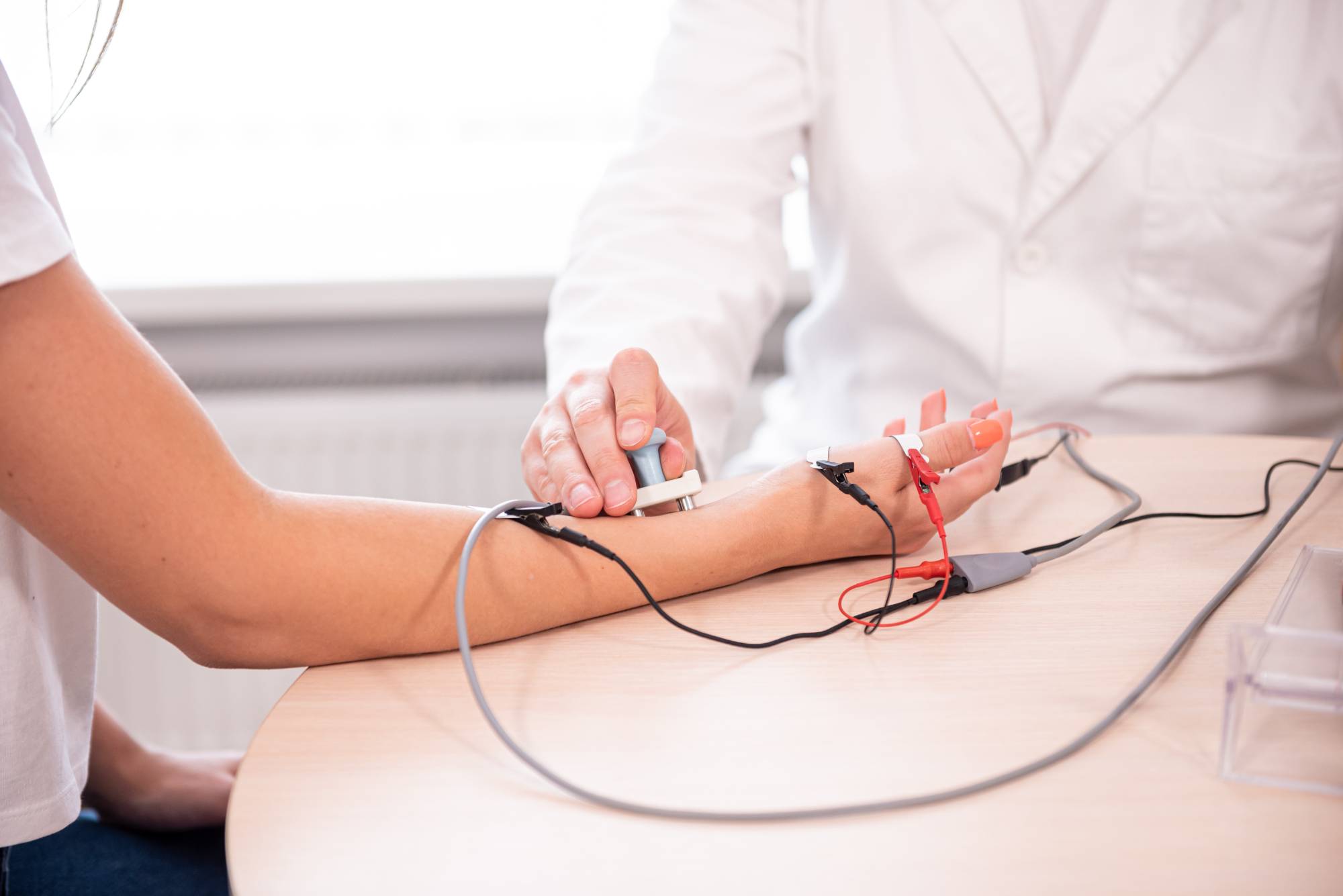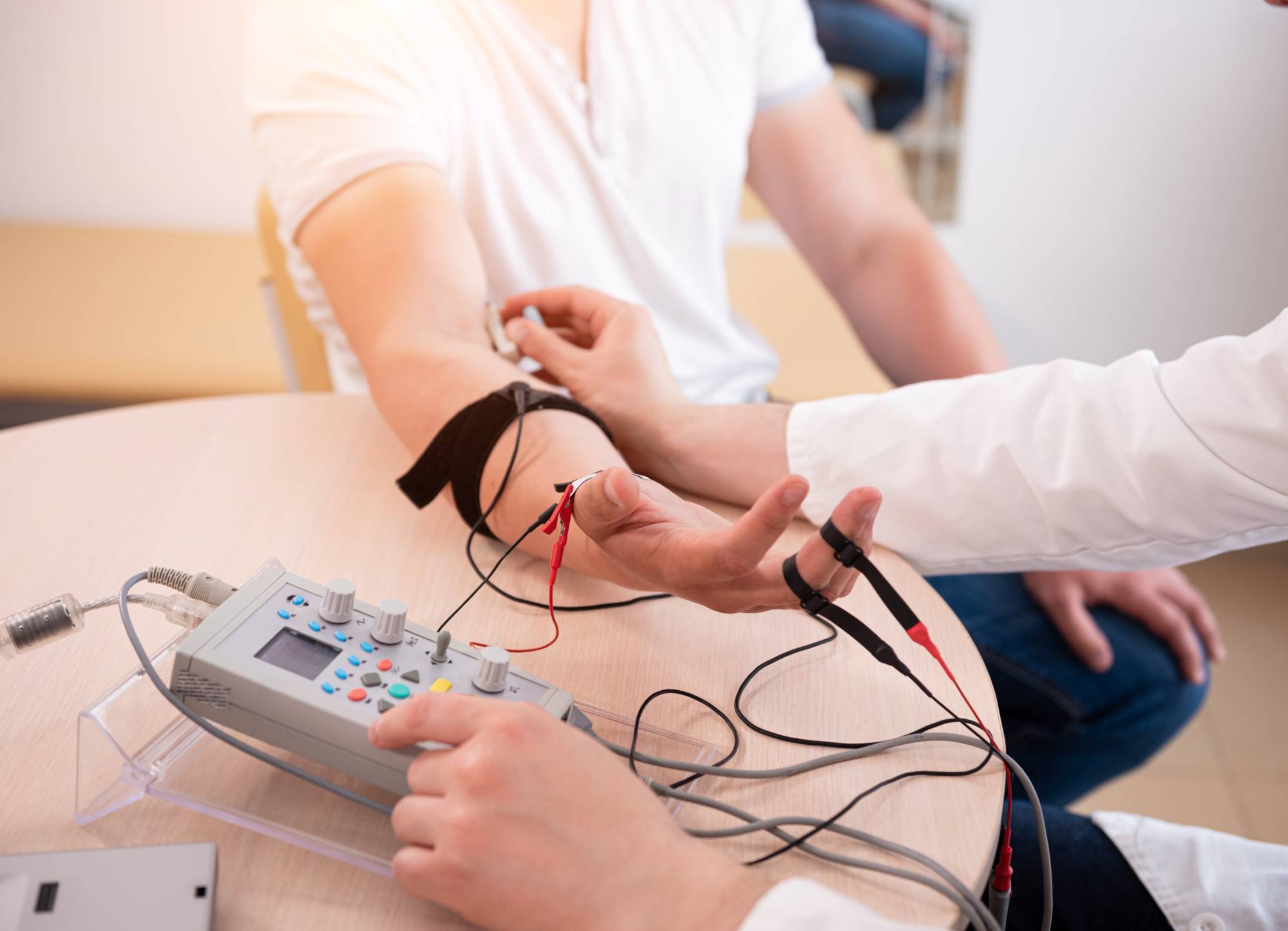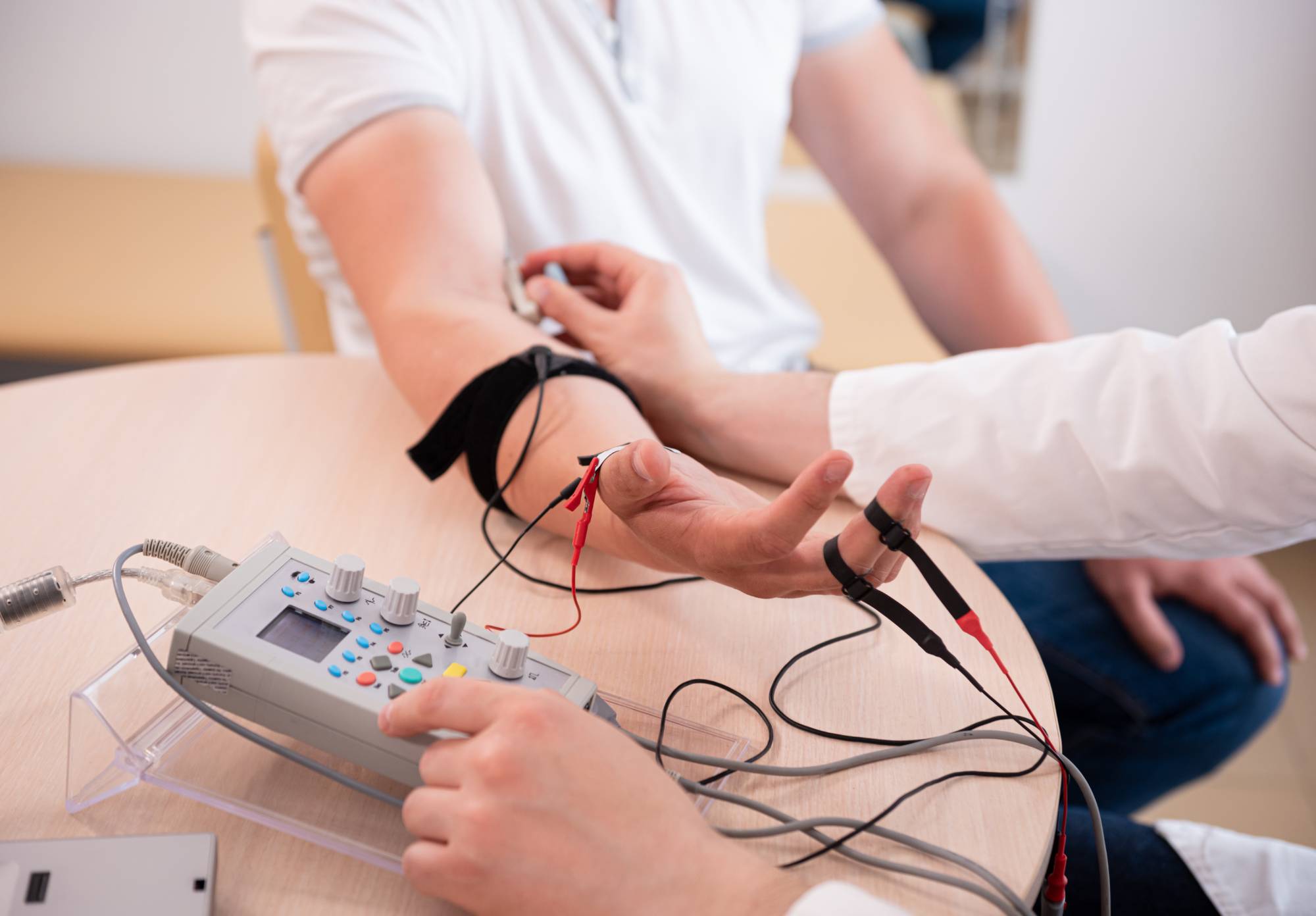Advanced EMG testing that pinpoints exactly what’s causing your numbness, tingling, or muscle weakness.

Reviews

You’ve been dealing with unexplained symptoms long enough. That tingling in your hands, the weakness in your legs, the shooting pain down your arm – you need answers, not more guessing.
EMG testing gives you those answers. Within one appointment, you’ll know if your symptoms stem from nerve damage, muscle disorders, or conditions like carpal tunnel syndrome or sciatica. No more wondering if it’s serious or if it’s all in your head.
When you understand exactly what’s happening in your body, you can move forward with the right treatment. Your symptoms have a cause, and EMG testing finds it.
NY Spine Medicine has been helping South Florida patients get accurate neurological diagnoses for years. We understand that living with unexplained nerve symptoms affects every part of your life.
Located in Coconut Grove, our practice focuses on comprehensive diagnostic testing using advanced EMG and nerve conduction study equipment. Our physicians take time to explain your results clearly, so you understand exactly what the tests reveal about your condition.
You’re not just another appointment. You’re someone who deserves clear answers and a path forward.

EMG testing involves two parts: nerve conduction studies and electromyography. During nerve conduction testing, small electrical pulses measure how well your nerves transmit signals. You’ll feel brief, mild sensations as our technician tests different nerve pathways.
The electromyography portion uses a thin needle electrode to measure electrical activity in your muscles. While this sounds uncomfortable, most patients find it tolerable and much less painful than they expected.
The entire process typically takes 30-60 minutes, depending on which nerves and muscles need testing. You’ll receive results immediately, with clear explanation of what the findings mean for your specific symptoms and treatment options.

Ready to get started?
Your EMG testing includes comprehensive evaluation of both nerve conduction and muscle function. The testing can identify conditions like carpal tunnel syndrome, ulnar neuropathy, diabetic neuropathy, radiculopathy, and various muscle disorders.
Each test is customized based on your specific symptoms and areas of concern. If you’re experiencing hand numbness, the focus will be on median and ulnar nerve pathways. For leg weakness or sciatica symptoms, testing concentrates on the relevant spinal nerve roots and peripheral nerves.
You’ll receive detailed results interpretation, clear explanation of any abnormalities found, and specific recommendations for treatment based on your diagnostic findings. The goal is giving you the information needed to move forward with confidence.

New York:
Florida:
Support